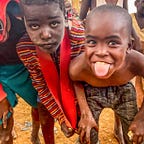‘Cleaning Up’ Mogadishu
Somalia’s capital, Mogadishu, lies is on a stretch of coveted East African coastline — bordered by crystal waters dotted with palm trees. However, over the last two decades, a lack of service providers and scarce government resources created a gap in basic service delivery (including garbage collection). Garbage piles up in blocked roads, debris litters the city’s beaches, and rubbish lined streets provide a daily reminder of years of war and neglect for Mogadishu’s citizens. As Somalia’s government rebuilds and introduces new reforms to improve living standards and grow the economy, the Mogadishu local municipality is trying to ‘clean up’ its image and help residents find pride in their capital through an innovative clean-up campaign.
In May, UNDP and the Banadir Regional Authority (BRA) teamed up to launch the ‘Mogadishu Clean-up Project’. This project is helping clean up the city and creating employment opportunities for hundreds of Somalis, including young people and women, in the areas it works. Improved waste management will boost sanitation, improve public health indicators, render more roads accessible, and protect the environment. Communities also benefit when short-term employment (to remove trash and clear roads) is available for the local workforce.
“Heaps of garbage and sand covered the few available roads. The lack of accessible roads greatly undermined social development and recovery efforts,” said Ahmed Abdullahi, District Commissioner of Xamar Jajab District in Mogadishu’s Banadir Region. “Now the community has ownership and redeemed trust — in fact, they are voluntarily paying taxes and reporting unauthorized rubbish dumping. Through this positive step, we have initiated a monthly sanitation competition among the settlements in which the overall winners will be rewarded with sanitation trophies.”
In July, Abdal Aziz District in Mogadishu became the first district in Banadir Region to kick off the clean-up. Working with the Brothers Relieve and Development Organization (BRADO), a local Somali NGO, the BRA launched community mobilization activities to help residents understand the negative health implications and effects on the environment that stem from trash build-up. Communities were directly involved in the clean-up of their neighbourhoods — local councils and community groups were consulted to create a project that could fit their specific needs.
Together with the community, UNDP, BRA and BRADO completed mapping assessments and site selection. This analysis guided local workers, who collected garbage on roads, filled potholes, and opened previously-blocked feeder roads. To date, 640 square meters of trash has been collected, 12 km of roads have been cleaned, six roads now accessible and cleaned, three previously closed feeder roads opened, Mogadishu’s Lido Beach cleared, and 324,250 square meters of rubbish cleared. Community awareness activities (including public service announcements on radio and television) provide guidance on ways to keep the district clean and encourage residents to establish their own sanitation measures.
Habibo Omar, a 39 year old mother of 10 children, was one of the participants from Abdal Aziz. “My husband is jobless. My family entirely depends on me, and we earned a living by selling milk,” she said. “I was fortunate to be one of the beneficiaries in the clean-up project. I was chosen by the community because of my family’s vulnerable status. We worked for a total of 24 days and earned a lump sum of $120 (about $5 per day). We used the money to buy food, and medicine, and pay school fees.”
“I never had such a proud moment where I cleaned my own street and earned a living,” Habibo said. “This was a great project that turned our lives for the better. Today the streets are clean, our environment welcoming and our morale high from working for our community.”
A lack of employment opportunities, specifically for the country’s nearly 9 million young people, remains a huge concern in Somalia. The Federal Government of Somalia and the international community are putting this priority at the forefront of their development agenda. Projects, like the Clean-up Campaign, can provide short-term employment opportunities, skills development for young people, and a boost for local economies. In Abdal Aziz District, the Clean-up Campaign generated short-term employment for 333 workers, 316 of which are women.
This initiative is part of a Joint Programme on Youth Employment launched this year between the Federal Government of Somalia and the United Nations to create sustainable employment for young people. With generous support from the governments of Denmark, Italy and Sweden, the Mogadishu Clean-up Campaign will complete clean-up campaigns in six districts in the Banadir Region, with 2000 paid workers, by the end of the year.
